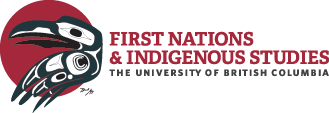Aboriginal Fisheries in British Columbia
…between house groups from different territories, and develop sophisticated harvesting techniques. A variety of fishing gear enabled fishers to target different species and runs of salmon at the same site,…
Aboriginal Identity & Terminology
…their community may not recognize the traditional community name, or might know the community or nation by another name than the one the community uses: many common names others use…
ILO Convention 107
…Indigenous peoples enter the (settler-based) market economy. Regarding land rights, Article 12.1 of the convention states that Indigenous populations “shall not be removed without their free consent from their habitual…
Reserves
…pretense that Aboriginal people did not need so much land and that white settlers would make better use of it—an ethnocentric view that defined “productive use” as resource extraction and…
ILO Convention 169
…This site’s many resources are primarily geared toward Indigenous leaders’ promoting the use of Convention 169 in their communities. Books & articles International Labour Organization. “Monitoring Indigenous and Tribal Peoples’…
Bill C-31
…under the Canadian Charter of Rights and Freedoms. It proposed modifications to various sections of the Indian Act, including significant changes to Indian status and band membership, with three major…
UN Declaration on the Rights of Indigenous Peoples
…right to self-determination, which includes the right “to freely determine their political status and freely pursue their economic, social and cultural development.” Article 4 affirms Indigenous peoples’ right “to autonomy…
Métis
…question of who should be entitled to Métis rights can create tensions between different Métis communities. Yet because the Powley case forces us to re-examine these issues, it has brought…
Terminology
…and ethnic identities that resulted from unions between Aboriginal and European people in what is now Canada. This term has general and specific uses, and the differences between them are…
The White Paper 1969
…the Indian Act would “enable the Indian people to be free—free to develop Indian cultures in an environment of legal, social and economic equality with other Canadians.” To this end,…

